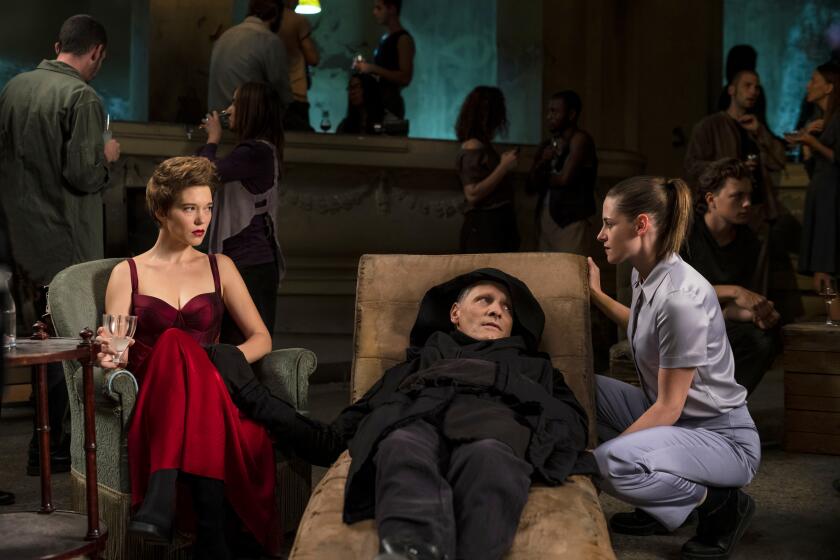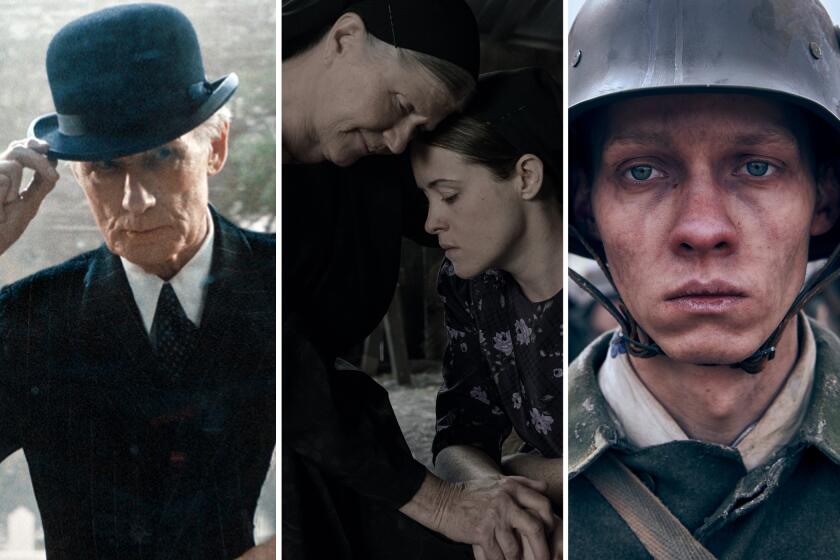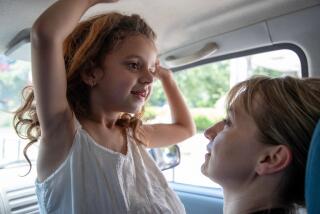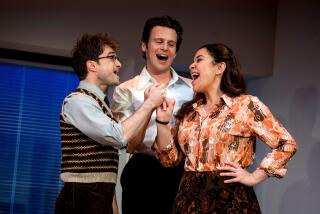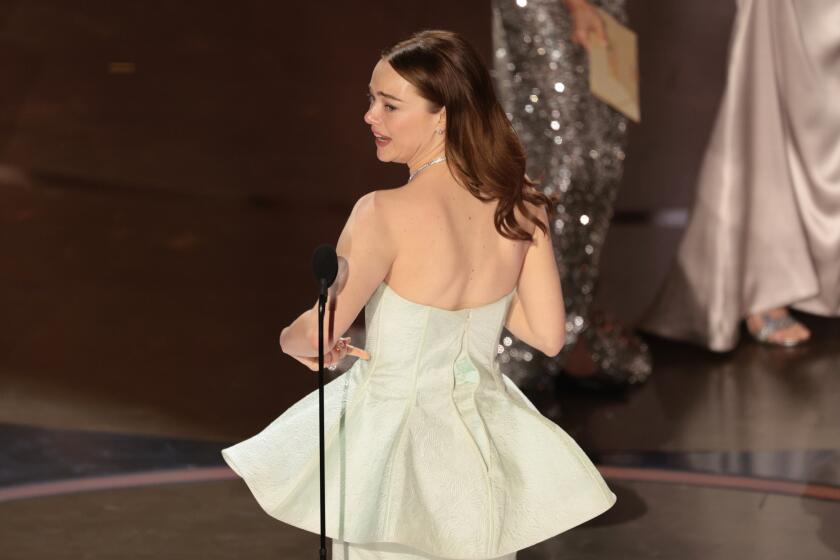‘Close’ is a study of friendship and the expectations of masculinity placed on boys
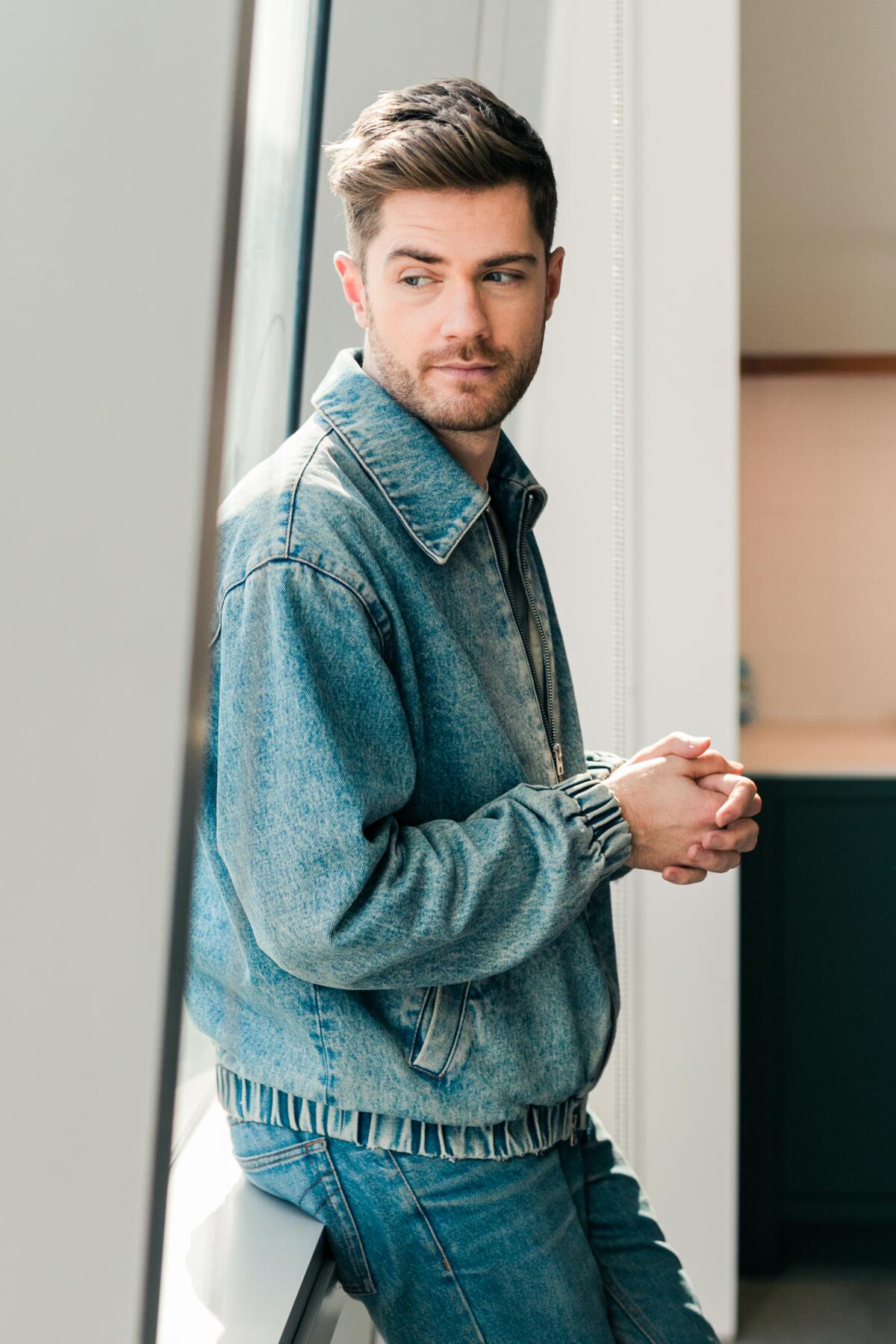
With his first two films earning global acclaim, Belgian director Lukas Dhont has now demonstrated considerable cinematic skill. He has a masterful eye when it comes to finding that perfect composition and, perhaps more important, a knack for casting charismatic first-time actors. But, as demonstrated in his Cannes Film Festival-winning drama “Close,” the filmmaker also knows how to craft a picture that overflows with genuine emotion. On this side of the Atlantic, we might even refer to it as a “tearjerker.”
“I think I always start from the heart. An experience, an expression that feels deeply, deeply personal to me,” Dhont says. “The struggle, for example, with a stereotype of how a young boy [is expected] to behave, I think is deeply personal for me. But then, I also try to look for everything that makes it a shared experience. We’ve all been in that place where a friendship has left us heartbroken, and a lot of the time it’s linked to a romantic relationship, but not always to friendship.”
Dhont’s sophomore effort, “Close,” which took the Grand Prix at the 2022 Cannes festival, centers on Léo (Eden Dambrine) and Rémi (Gustav de Waele), two 13-year-old boys who are the best of friends. They spend the summer running through Léo’s family flower farm and have a familial intimacy rarely seen between boys in Western culture. It’s only when the pair return to school that teenage social dynamics begin to tear at the bonds of their companionship. When Léo branches out in new directions, Rémi is increasingly unable to cope with his best friend becoming more distant.
Breaking down what should have won the top prizes at cinema’s prestigious festival, from a critic who saw all the eligible films.
“I was someone who really pushed people away, and I wanted to make a film that I considered a love letter to those people,” Dhont says. “I think the first image that came when writing and starting to develop the writing was the two boys running between flowers. I think that is because we lived very close to a flower farm. That really connected to my own childhood.”
On some level, Dhont knew he wanted his second film to be about friendship, but it wasn’t until he read “Deep Secrets: Boys’ Friendships and the Crisis of Connection,” by American psychologist Niobe Way, that he found his inspiration. The nonfiction book is the result of hundreds of interviews with boys between the ages of 13 and 18. Through her research, Way discovered a striking difference in perspective on feelings of friendship between adolescent boys and those closer to adulthood. Although Léo and Rémi’s bond in the movie has struck a chord with many LGBTQ+ viewers, that wasn’t the prism that the publicly out Dhont was ultimately fascinated by.
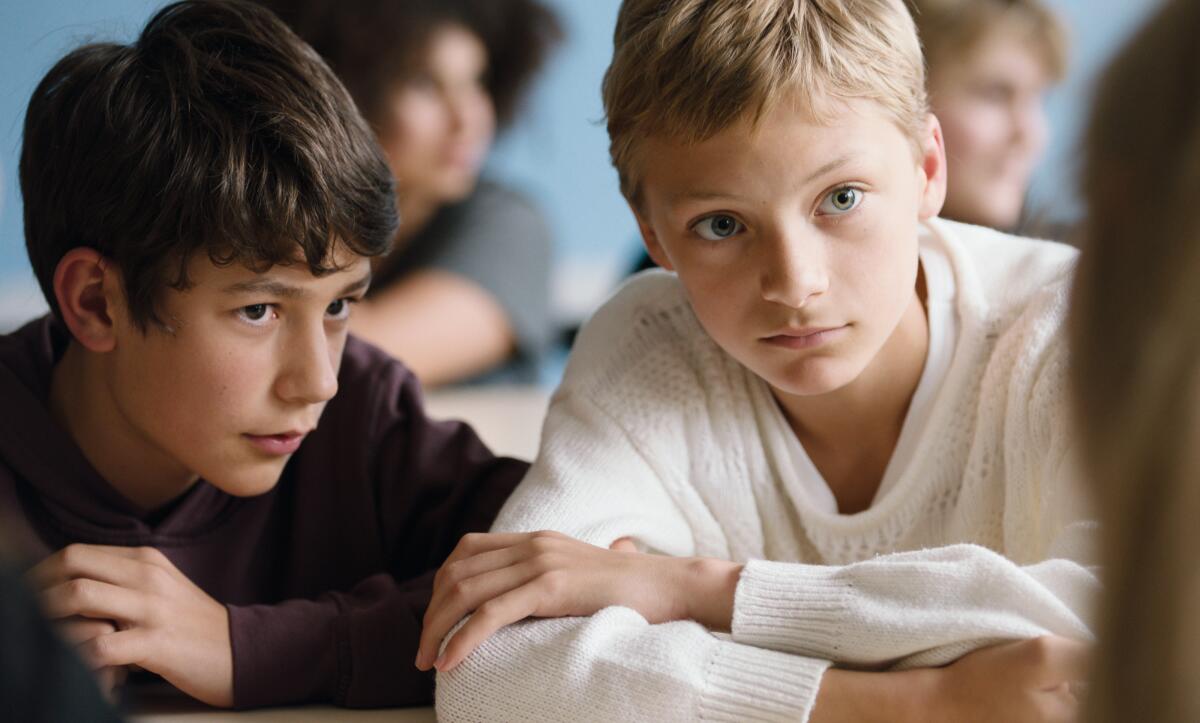
“When I read these testimonies of these 150 boys that aren’t necessarily queer, I realized that making it only about a queer experience would limit it to that,” Dhont says. “While it is not only about a queer experience, it’s about the young male experience, because young men are not given that space to express themselves in that way. It gives you a place as an audience to interpret that experience as you want. But it’s not about their sexuality, it’s about how their intimacy and their sensuality are looked upon and how we are conditioned to look at it. How we want to compartmentalize everyone into boxes and labels and how we want to put a stamp on that love, and not let that love just exist in its true free form.”
Obviously, finding the two boys to tell this tale was key. In a stroke of luck, Dhont randomly met Dambrine on a train ride during which he became intrigued by the youngster’s energy and intelligence. A casting day of 20 boys followed, where Dambrine and De Waele ended up gravitating toward each other. After landing the roles, the pair spent a year hanging out with each other, but Dhont notes he was genuinely afraid they would grow up too fast before filming began.
“We ate a lot of pancakes, a lot of cake, a lot of ice cream; I really had to get my sports up afterward,” Dhont says with a laugh. “But also, the confidence between us, the trust between us became really big. I think one thing that I expressed to them early on is that ‘your emotion will not be used against you. It’s not about being perfect, it’s not about nailing it every take. It’s just about being and loving each other.’ I think we also created this intimacy with the adult actors, because they are also a part of that.”
Our BuzzMeter film experts predict the Oscar winners in 10 categories. Check out the consensus picks, close races and interesting narratives - and vote in the polls for every category.
Dhont thinks that despite their relatively young ages, both actors “realize that there is something that needs to change in the vocabulary we create around men and around masculinity.”
“I feel like they are excited to be a part of that wave, even if it’s only a little bit,” Dhont says. “They are really changing, because Gustav is now a little bit more of a skater. The last time he arrived with his skateboard, I was like, ‘You are growing up at a rapid tempo.’ I think Eden is someone who in his life has been confronted with the fact that he is someone who for many is not considered a boy and so has been dealing with that difficulty. He knows very well what the stakes of it are and how important it is.”
More to Read
From the Oscars to the Emmys.
Get the Envelope newsletter for exclusive awards season coverage, behind-the-scenes stories from the Envelope podcast and columnist Glenn Whipp’s must-read analysis.
You may occasionally receive promotional content from the Los Angeles Times.
